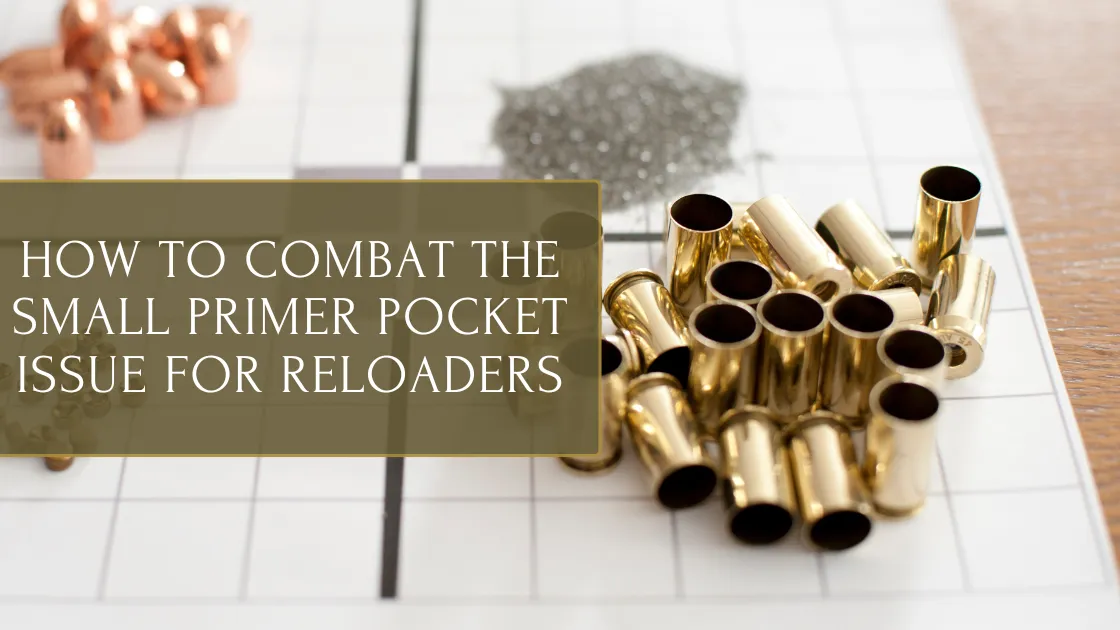Blog

How to Combat the Small Primer Pocket Issue for Reloaders
Reloading enthusiasts often face the challenge of dealing with the small primer pocket issue. This problem can cause significant frustration and affect the efficiency and safety of the reloading process. In this article, we will explore effective strategies to combat the small primer pocket issue and ensure a smooth reloading experience.
Understanding the Small Primer Pocket Issue
The small primer pocket issue arises when the primer pocket, which holds the primer in place in the brass case, is smaller than standard dimensions. This can lead to difficulties in seating the primer, increased risk of misfires, and potential damage to the reloading equipment. Understanding the causes and solutions to this problem is crucial for any reloader.
1. Identify the Brass Type
Different manufacturers may produce brass with varying primer pocket dimensions. It's essential to identify the brass type you are using and check if it has small primer pockets. Some brands are known to have cases with smaller pockets, particularly in certain calibers. Always inspect your brass and keep track of the manufacturers to anticipate potential issues.
2. Use the Right Tools
Investing in the right tools can make a significant difference when dealing with the small primer pocket issue. Primer pocket reamers and uniformers are essential tools that can help enlarge and standardize the pocket size. These tools remove excess material and ensure a consistent pocket dimension, making primer seating easier and more reliable.
3. Consistent Cleaning and Maintenance
Keeping your brass clean and well-maintained can reduce the likelihood of encountering small primer pocket issues. Residue and debris can accumulate in the primer pocket, making it even smaller. Regularly clean your brass with a tumbler or ultrasonic cleaner to remove any contaminants. Additionally, inspect and clean the primer pockets individually if needed.
4. Proper Lubrication
Applying a small amount of lubrication to the primer pocket can help ease the insertion of primers, especially in cases with tight pockets. Use a lubricant specifically designed for reloading to avoid any adverse effects on the primers or powder. Ensure that the lubricant does not interfere with the seating process or leave excessive residue.
5. Contact Your Brass Supplier
If you consistently encounter the small primer pocket issue with a particular batch of brass, it may be worth contacting your supplier. Reputable suppliers can provide guidance and support, and they may offer replacements or solutions to address the problem. Open communication with your brass supplier can help you avoid future issues and ensure a reliable supply of quality brass.
Struggling with the small primer pocket issue? For top-quality reloading brass supply and expert support, contact Mojo Precision today. Our team is dedicated to providing you with the best products and solutions to enhance your reloading experience. Reach out to us now and ensure your reloading process is smooth and efficient!
By implementing these strategies, you can effectively combat the small primer pocket issue and improve the overall reliability and safety of your reloading activities. Regular maintenance, the right tools, and quality brass are key to overcoming this common reloading challenge.

How to Combat the Small Primer Pocket Issue for Reloaders
Reloading enthusiasts often face the challenge of dealing with the small primer pocket issue. This problem can cause significant frustration and affect the efficiency and safety of the reloading process. In this article, we will explore effective strategies to combat the small primer pocket issue and ensure a smooth reloading experience.
Understanding the Small Primer Pocket Issue
The small primer pocket issue arises when the primer pocket, which holds the primer in place in the brass case, is smaller than standard dimensions. This can lead to difficulties in seating the primer, increased risk of misfires, and potential damage to the reloading equipment. Understanding the causes and solutions to this problem is crucial for any reloader.
1. Identify the Brass Type
Different manufacturers may produce brass with varying primer pocket dimensions. It's essential to identify the brass type you are using and check if it has small primer pockets. Some brands are known to have cases with smaller pockets, particularly in certain calibers. Always inspect your brass and keep track of the manufacturers to anticipate potential issues.
2. Use the Right Tools
Investing in the right tools can make a significant difference when dealing with the small primer pocket issue. Primer pocket reamers and uniformers are essential tools that can help enlarge and standardize the pocket size. These tools remove excess material and ensure a consistent pocket dimension, making primer seating easier and more reliable.
3. Consistent Cleaning and Maintenance
Keeping your brass clean and well-maintained can reduce the likelihood of encountering small primer pocket issues. Residue and debris can accumulate in the primer pocket, making it even smaller. Regularly clean your brass with a tumbler or ultrasonic cleaner to remove any contaminants. Additionally, inspect and clean the primer pockets individually if needed.
4. Proper Lubrication
Applying a small amount of lubrication to the primer pocket can help ease the insertion of primers, especially in cases with tight pockets. Use a lubricant specifically designed for reloading to avoid any adverse effects on the primers or powder. Ensure that the lubricant does not interfere with the seating process or leave excessive residue.
5. Contact Your Brass Supplier
If you consistently encounter the small primer pocket issue with a particular batch of brass, it may be worth contacting your supplier. Reputable suppliers can provide guidance and support, and they may offer replacements or solutions to address the problem. Open communication with your brass supplier can help you avoid future issues and ensure a reliable supply of quality brass.
Struggling with the small primer pocket issue? For top-quality reloading brass supply and expert support, contact Mojo Precision today. Our team is dedicated to providing you with the best products and solutions to enhance your reloading experience. Reach out to us now and ensure your reloading process is smooth and efficient!
By implementing these strategies, you can effectively combat the small primer pocket issue and improve the overall reliability and safety of your reloading activities. Regular maintenance, the right tools, and quality brass are key to overcoming this common reloading challenge.

